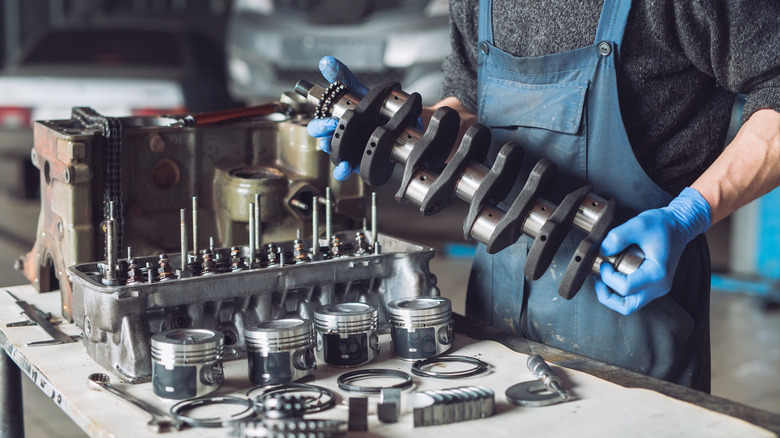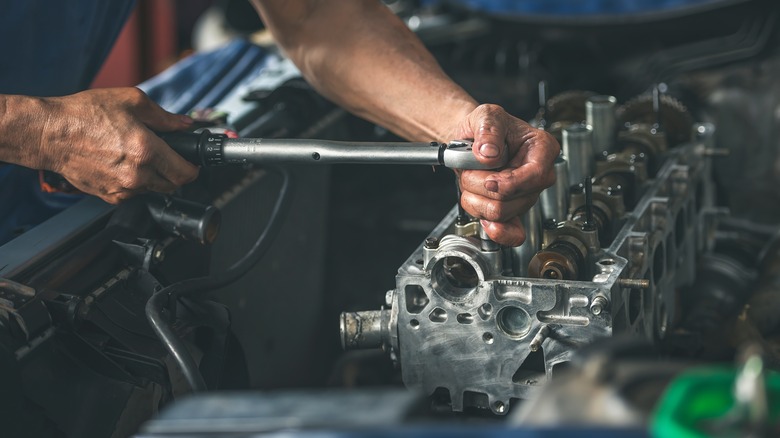What Is A Remanufactured Engine, And Is It Better Than A Rebuilt Engine?
Engine trouble is a constant worry for pretty much every car owner in the world, but it's a worry that is almost universally eclipsed by the possibility of outright engine failure. The latter could lead to transportation issues that impact your daily life, and it could also put considerable financial strain on drivers who choose to purchase a new car as a solution.
If a new car is not an option, you could replace your car's failing engine with a used one, and if you're handy with a wrench, you might also consider buying a kit to build a new engine yourself. But if you're not up to that challenge, you'll probably look at outfitting your vehicle with a rebuilt engine or one remanufactured by an automotive professional. While most car owners are familiar with the concept of a "rebuilt" engine, the term "remanufactured" is likely less known for many.
If you're unfamiliar with remanufactured engines, they are conceptually the same as a rebuilt one, as a certified mechanic essentially takes the failing engine apart and puts it back together after fixing and cleaning any parts that need it. The process is far more intricate for remanufactured engines, though, with the auto tech tearing each engine down and restoring it as close as possible to its original factory standards. According to Kelly Blue Book, that process can include replacing critical engine components such as the crankshaft bearings, pistons, and gaskets with brand-new parts.
Choosing between a reman or rebuilt engine is a matter of cost and quality
Given the skill and attention to detail involved in remanufacturing an engine, it should go without saying that "remans" tend to cost considerably more than their rebuilt counterparts. You are, after all, essentially putting a brand-new engine in your car. That being said, if price is your primary criterion for deciding between a rebuilt or remanufactured engine, a rebuild is the way to go.
There is a significant drawback with rebuilt engines in that auto shops are not required to use new parts in the process, and used parts can decrease both the performance and durability of your rebuild. Perhaps more problematic in that part of the equation is that mechanics rarely offer a warranty for rebuilds, and if they do offer one, it's likely to be very limited. The same is not true of remanufactured engines, as companies and manufacturers who undertake the pricey comprehensive process tend to guarantee their work with a multi-year warranty.
As welcome as a multi-year warranty will be, you may never need to use one for a properly remanufactured engine as they're generally expected to function like new for many years and several thousand miles after installation. Given the facts, car owners willing to make such a sizable investment may want to consider going with a remanufactured engine. As is the case with all automobile work, the durability of even a remanufactured engine depends on a mechanic's skill. So, if you are looking to invest in a remanufactured engine for your car, choose your mechanic wisely.

